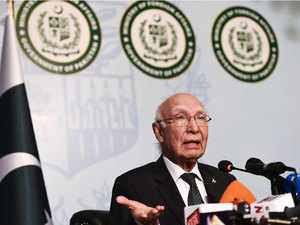
by Usman Ali Khan 1 March 2020
The origin of a commitment to develop nuclear energy for peaceful purposes can be traced to President Eisenhower’s ‘Atoms for Peace’ speech in 1953 and the subsequent establishment of the IAEA in 1956. From the very beginning, Pakistan’s civilian nuclear energy programme has contributed to its socio-economic uplift and there is ample room available for Pakistan to enhance its nuclear power generation capability to meet growing energy demands. However, due to politically motivated rhetoric and fabricated narratives, Pakistan’s peaceful nuclear program remains outside the global mainstream.
Markedly, Pakistan has, up till now, played a very important role in utilizing the peaceful nuclear energy sector in various domains. The peaceful applications are best utilized in power generation, minerals exploration, developing high-yield stress tolerant crops, cancer treatment, designing and fabrication of industrial plants and equipment and human resource development for many years.
Pakistan has used its Centre of Excellence to promote and share best practices in nuclear security through three affiliated institutes: the Pakistan Centre of Excellence for Nuclear Security (PCENS), the National Institute of Safety and Security (NISAS), and the Pakistan Institute of Engineering and Applied Sciences (PIEAS). Along with this, Pakistan Nuclear Regulatory Authority (PNRA) was established under the Ordinance III of 2001 for regulation of nuclear safety and radiation protection. Pakistan also signed convention on nuclear safety in 1994 which requires states to established regulatory body separated from those involving the promotion of nuclear energy. PNRA, since its development, has demonstrated excellence as a role model for safety culture at national and international levels by adopting various precautionary measures.
While exploring Pakistan’s merits for nuclear safety and security these institutes works efficiently in their own domains. The main objective of PCENS is to provide basic training and teaching regarding nuclear security and response nationally as well as internationally. The IAEA also uses Pakistan’s Center for Nuclear Excellence as a regional hub to teach and promote nuclear safety and security practices. Meanwhile, NISAS was created with an objective to conduct focused and dedicated courses to provide widespread training for effective regulatory operations. In addition, PIEAS’ main objective is to conduct academic courses in the field of nuclear safety and security at master’s level of education.
Interestingly, the former IAEA’s Director General Yukiya Amano visited Pakistan in March 2018. During his stay in Pakistan he observed various nuclear facilities of Pakistan’s Atomic Energy Commission (PAEC). He appreciated the country’s safety and security of nuclear program and showed satisfaction with Pakistan’s peaceful uses of nuclear energy. Keeping in mind the prospects of peaceful use of nuclear energy, the IAEA, in 2018, initiated a four-year program with Pakistan to closely coordinate with country’s key nuclear energy institutions on safe, reliable and sustainable operations of nuclear power plants.
Just this past week, Pakistan provided a thorough glance to its ‘stringent’ civilian nuclear safety mechanisms. This event was a global summit on nuclear security in Vienna which was attended by diplomats around the world.
A booklet was presented by Pakistan titled ‘Pakistan’s Nuclear Security Regime,’ released alongside the International Atomic Energy Agency’s (IAEA) third International Conference on Nuclear Security (ICONS)- with the aim to demonstrate the Pakistan’s “commitment and contribution to the global objectives of civilian nuclear utilization.” Such a step was taken with an aim to counter the myths, disinformation, misperceptions and unfounded propaganda against the country’s peaceful nuclear energy programme. The booklet outlines that there is an urgent need to recongnise the best practices Pakistan has in place for safety of its peaceful uses of nuclear energy.
The booklet further states that country’s peaceful application of nuclear energy is under a ‘multi-layered defence’ pattern. In order to counter any threats to its assets, Pakistan already has in place, the concept of 5Ds i.e. deter, detect, delay, defend and destroy. Additionally, for physical protection, it was highlighted that the country has in place the modern technological solutions. Such technological innovations include intrusion detection systems, access control systems, delay barriers and search systems and a central alarm station.
Being a nuclear state, Pakistan attaches highest significance to its civilian nuclear energy programme and complies with all international and domestic obligations. Pakistan adheres to several international resolutions aimed at prevention of nuclear terrorism and proliferation of nuclear material, such as UN Resolution 1540, (aimed at the prevention of transfer or assistance to produce nuclear weapons); Global Initiative to Combat Nuclear Terrorism, Proliferation Security Initiative and Container Security Initiative.
Lastly, despite these responsible contributions of Pakistan vis-vis nuclear safety and security, it is quite clear that Pakistan follows best practices and there is no room for chances of any nuclear related mishap. Pakistan’s clean history in utilizing nuclear energy programme is a clear depiction of its national resolve and commitment towards effective implementation of stringent peaceful nuclear programme which compliments country’s socio-economic development. Therefore, country specific discrimination particularly against Pakistan’s peaceful nuclear programme in global nuclear mainstream appears to be politically motivated.
There has been a course of disregard towards Pakistan’s world class standards which are in place with regards to its nuclear safety and security. Observingly, even as a developing country, Pakistan made it best possible to keep the safety and security as its integral part of nuclear energy programme.
The international community needs to realize that Pakistan has a remarkable experience in safe and secure operation of nuclear power plants. Therefore, there is a need to admire the efforts and commitments Pakistan has in place for its peaceful nuclear programme and must recognize Pakistan as a responsible nuclear state. As it has been rightly said that Pakistan is confident but never complacent regarding nuclear safety and security.
